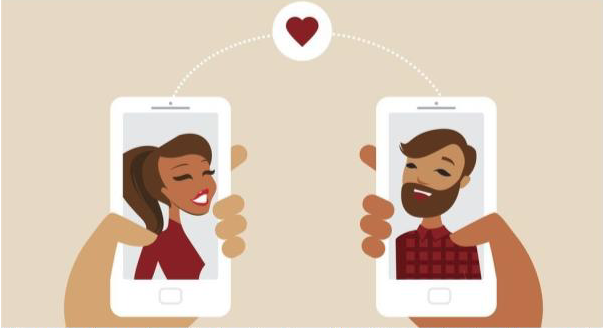
When you graduate or change the place of residence, all you do is live and work, and it turns out that it is difficult to find someone of your age group who will have the same interests, desires, and views on life. Moreover, many people face the problem of finding their significant others. Despite the fact that we meet thousands of people every day, everyone is busy with their own business. So, what to do? Right now, online dating can be very useful, and it doesn’t matter who you are looking for and where you are looking for – on a dating site or social networks, it is just important to be always careful and vigilant if you use a phone. Phones became an integral part of our lives: they replace a photo album, a notebook, a diary, and many other things. We keep in them lists of our contacts, personal correspondence, photos, bank account numbers, and so on. Imagine that all this information may one day become the property of unauthorized persons! Therefore, we will present you the tips on how to keep your phone safe and continue dating without the fear of being deceived. The text is taken from https://j4l.com.
1. When downloading applications, use only trusted stores such as the App Store and Google Play
These are official sources where applications are checked before being publicly displayed and downloaded by regular users. Therefore, there is much less chance of running into malware. When the dating app is downloaded from an unofficial store or site where unlicensed materials are posted, you may have a sad result. Likewise, if you are looking for a certain application, chances are you are going to find the official version at the appropriate store, while unofficial sources may only provide you with the rip-offs of your favorite products.
2. Control your correspondence
Ignoring suspicious links and messages on dating sites is also good protection against hacking. You need to be careful. Don’t open the links that users send you. Pay attention to suspicious messages with strange requests, even when they come from a person you like. Also, pay attention to commercial links that aren’t marketed towards you. These are most likely to be spam messages with dangerous content.
3. Watch out for connected Wi-Fi networks
Many phones try to connect to the networks to which they have ever connected. It may happen that instead of a familiar network, it will be a hotspot with the same name but created with malicious purposes.
4. Don’t tell your personal information
If someone on a dating site asks your personal data, never tell it until you trust a person. Moreover, you have to delete your home address on Google Maps and also disable the sending of geodata in the settings of all accounts. By personal data we also mean social security numbers, your date of birth, occupation, marital status etc. Using this seemingly ubiquitous information, con-artists can easily hack your phone and take advantage of anything they want. Additionally, it’s wise to choose a dating platform that prioritizes user safety and security. One way to find reliable platforms is by reading reputable reviews. For example, Online For Love’s review about BBW dating platforms, provides insightful information about the sites’ features helping you make informed decisions about the most trustworthy options available.
5. Install antivirus software
It should be understood that a smartphone is a full-fledged computer, and it can’t do without antivirus. Even if you click some link on a dating site, the antivirus can protect your phone. Use licensed antiviruses that detect and block suspicious applications and viruses.
6. Set passwords
If you meet in real life, then set a password on your phone. Passwords must be of sufficient length (7-10 characters), contain letters and numbers. So, don’t be lazy and regularly change your passwords. Thus, you will protect yourself and a phone. Oh, and just one more thing: don’t set the same password everywhere! When your phone is hacked, you become a victim of your own convenient moves because, by puzzling out a single password, the scammer gains access to practically every piece of your life. Convenient, eh?
7. Always back up your data
Do it at least once a month. Backup allows you to fully restore data in case of loss or hacking a device.
8. Don’t forget to regularly update already installed applications
The fact is that even a program from an official source may be potentially vulnerable to hackers. With each update, the developers are trying to provide you with protection to the maximum.
9. Protect personal correspondence
To avoid hacking, we recommend using only instant messengers with strong encryption.
10. Set automatic deletion of messages after a certain period of time
In this case, even if a hacker gains control of your phone, he or she will not be able to read everything.


